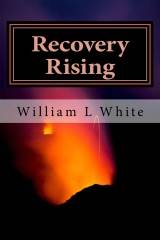 In 2011, Ernie Kurtz and I began a sustained meditation on the role of self in recovery. This was an extension of our earlier work on the "varieties of recovery experience" and was stimulated by a recovery research project led by Dr. Mike Flaherty. The project involved using in-depth interviews to compare and contrast people in widely divergent pathways of recovery, including Twelve-Step recovery, faith-based recovery, secular recovery, medication-assisted recovery, and natural recovery. One of many things we found within this study was quite different conceptions of the role of self in addiction and addiction recovery. In fact, we discovered two quite distinctive styles?one involving the assertion of self, the other involving transcendence of self.
In 2011, Ernie Kurtz and I began a sustained meditation on the role of self in recovery. This was an extension of our earlier work on the "varieties of recovery experience" and was stimulated by a recovery research project led by Dr. Mike Flaherty. The project involved using in-depth interviews to compare and contrast people in widely divergent pathways of recovery, including Twelve-Step recovery, faith-based recovery, secular recovery, medication-assisted recovery, and natural recovery. One of many things we found within this study was quite different conceptions of the role of self in addiction and addiction recovery. In fact, we discovered two quite distinctive styles?one involving the assertion of self, the other involving transcendence of self.
Some individuals in recovery (particularly those in secular and natural pathways of recovery) tend to emphasize the positive value of self in the recovery process. When interviewed, these persons reference the value of self-knowledge, self-esteem, self-confidence, self-assertion, self-reliance, self-sufficiency, self-discipline, and self-respect. In marked contrast, most people in spiritual and religious pathways of recovery define self as the source of the problem, not the solution. Their stories are filled with negative references to self-seeking, self-centeredness, selfishness, self-will, self-pride, self-deception, self-delusion, and self-pity. In their view, recovery is a process of surrender?emptying the self and relying on resources and relationships beyond the self. Their interviews are filled with references to self-sacrifice and service to others.
So we have two quite different styles of relationship to self in recovery. Plus, the potential exists for these styles to switch at different key moments in recovery. Because addiction counseling is historically rooted in the clinical fields of psychiatry, psychology, and social work, we have tended to view self-exploration, self-assertion, and self-esteem as both integral processes and desired outcomes of our counseling work. And yet these contrasting styles raise interesting questions within each counseling encounter we have: Does this person need to get into themselves or get out of themselves? Or might they need both experiences at different points in the recovery process? What do you think?